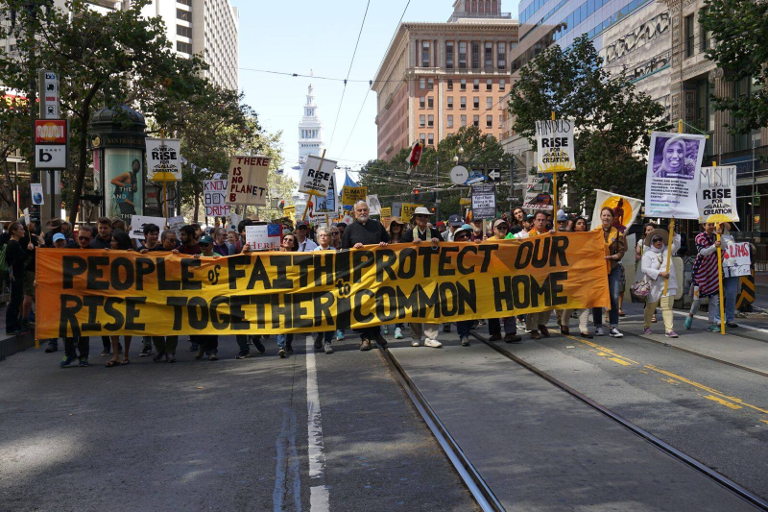Across the Carolinas, the floodwaters have receded and rebuilding is under way. But the epic 2018 hurricane season has left a mark, like a ghostly high-water stain on the wall of a flooded building. Today, Carolina residents increasingly accept the reality of climate change, and want to prepare for its ravages.
The urgent need to adapt to a hotter, wilder world presents extraordinary challenges. But it also offers a chance to rethink who we are, and how we live.
The challenges are real: our long coastline is vulnerable to sea-level rise and supercharged storms; our essential crops face withering heat and erratic rainfall. From hog farms to chemical plants and coal-ash ponds, our industries harbor toxic threats when flooded. And, as Matthew and Florence made clear, climate disasters hit low-income communities and communities of color first and worst.
There is growing awareness of the threats we face. An Elon University survey taken earlier this month showed that more than eight in 10 North Carolinians now believe climate change is “very” or “somewhat” likely to negatively impact the state’s coastal communities. The most notable shift is among Republicans, 37 percent of whom now believe global warming is “very likely” to have a negative impact—nearly triple the percentage who felt that way in 2017.
In fact, even before Florence hit, the Carolinas were reckoning with climate change by assessing the threats, preparing for the worst, and protecting the most vulnerable. For years, North and South Carolinians have been seeing climate changes firsthand, and finding ways to adapt. For example, North Carolina’s Land Loss Prevention Project—originally founded to prevent black farmers from losing their land to foreclosure—is identifying farm communities that are vulnerable to climate impacts and helping them move to safer land.
And, along the Low Country that stretches from the Carolinas to Florida, the Gullah/Geechee Nation—descendants of enslaved Africans with a distinct and vibrant culture—are facing existential threats to the land they call home. The Gullah/Geechee are responding with activism, not fatalism, by changing traditional agricultural practices in an effort to preserve their rich culinary heritage.
Across the Carolinas, people of faith are shaping the response to climate change. My organization, NC Interfaith Power and Light, recently convened a group of church leaders in Morehead City, NC. The church leaders in that coastal town were well aware of their vulnerability: they introduced themselves by name and by their homes’ elevation above sea level. In that meeting, they hatched a plan to pair less-vulnerable families with more-vulnerable ones. Forging those relationships before a crisis ensures that those at risk will be cared for in difficult times.
There is more where that came from. Earlier this week, people from Hilton Head to Winston-Salem gathered at the Carolinas Climate Resilience Conference (CCRC) in Columbia, SC to discuss the specific challenges we face, and to celebrate—and learn from—innovative, local efforts to meet those challenges.
Ironically, the CCRC was originally scheduled for late September, but was derailed by Hurricane Florence. Given that stark reminder of our new reality, conference organizers added lessons learned from Hurricane Florence to the agenda of real-world solutions to climate adaptation in the Carolinas.
Climate adaptation is not about “sustainability,” in the language of the mainstream environmental movement. Sustainability implies a steady state, a commitment to the status quo. But there is so much about the way we live that should not be sustained: our disregard for Creation; our unequal society that places the poor and marginalized at greatest risk.
To build a resilient future for the Carolinas and the world as a whole, we must reckon with the fact that profound change is now inevitable. But that change is a beginning as well as an end—an opportunity to hit the “reset” button on how we live. It asks us what we most want to preserve—including our traditions, our recipes, and the ties of culture and faith that bind us together. And it calls us to recommit to the values—justice, charity, and concern for the least among us—that will guide us through the difficult times ahead.
—
This article was published in collaboration with the Island Press Urban Resilience Project, which is supported by The Kresge Foundation and The JPB Foundation.
Teaser photo credit: Interfaith Power & Light Facebook page.





